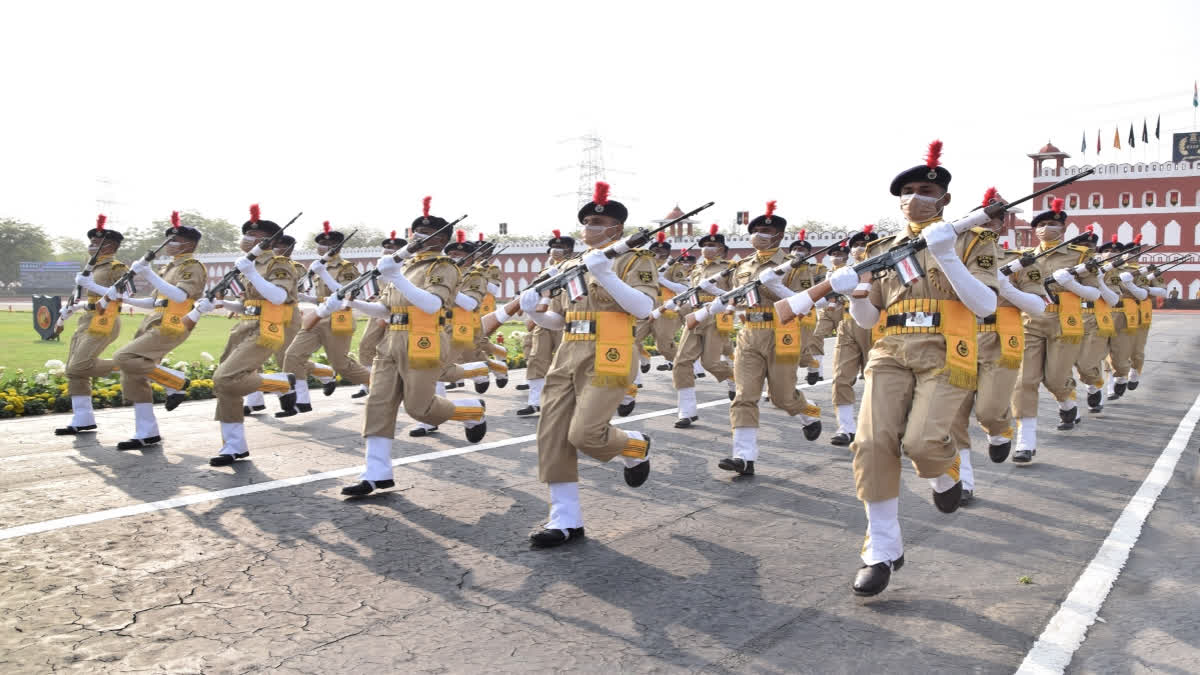Hyderabad: Every year on March 10th, India witnesses a surge of pride as the nation celebrates the Central Industrial Security Force (CISF) Raising Day. CISF (established in its present form: 15 June 1983) is a Central Armed Police Force in India which is instrumental in safeguarding the assets and infrastructures of the country. It was established on March 10, 1969, under an Act of the Indian Parliament, with 2,800 members. A later Act of Parliament issued on June 15, 1983, elevated the CISF to the status of an armed force of the Republic of India. Its authorized strength as of now is 142,526 people and is directly under the Union Ministry of Home Affairs and its headquarters are at New Delhi.
India celebrates the 55th anniversary of CISF (Central Industrial Security Force) Raising Day this year 2024. The CISF Raising Day serves as a powerful reminder of the immense contribution these brave men and women make towards national security. From securing airports and seaports to guarding vital installations like power plants and space research facilities, the CISF plays a pivotal role in ensuring the smooth functioning of India's economic and strategic assets.
The CISF provides security cover to 300 industrial units and other establishments located all over India. It protects industrial sectors that including airports, hydroelectric/thermal power plants owned and controlled by Central Public Sector Undertakings (PSUs), mints, oil fields and refineries, major ports, heavy engineering, steel plants, barrages, fertiliser units, atomic power plants, and currency note presses producing Indian currency.
It thereby covers installations all over India straddling a variety of terrain and climatic conditions. CISF offers consulting services to various Indian government organisations and private industries. TISCO, Jamshedpur; SEBI Headquarters, Mumbai; Vidhana Sabha, Bangalore; Orissa Mining Co., Bhubaneswar; Telangana Assembly, Hyderabad; Bangalore Metropolitan Transport Corp.; HIL Kerala; IB Thermal plant, Odisa; IARI, Delhi; NBRI, Lucknow, and Electronics City, Bangalore are a few of the well-known Indian corporations and business houses that the consulting wing counts among its clients. The scope of CISF’s consulting practice includes security consulting and fire protection consulting.
The Indian paramilitary force, known as the CISF, is a singular entity that operates across India's air, sea, and important sites. Some reserve battalions within the CISF collaborate with the state police to uphold law and order. A significant part of disaster management is played by CISF; troops in this field receive training from NISA, Hyderabad. The CISF has a Fire Wing that helps during fire accidents in Industries.
The CISF is headed by an Indian Police Service officer with the rank of Director-General, assisted by an IPS officer with the rank of Addl. Director-General. The force is divided into seven Sectors (Airport, North, North-East, East, West, South and Training), and also has a Fire Service Wing.
The Airport Sector is commanded by an IPS officer in the rank of Additional Director-General, assisted by an Inspector-General. There is one Field Formation Unit for each airport in the Airport Sector. At large international airports, Deputy Inspector-Generals or Commandants oversee the units, while Deputy or Assistant Commandants oversee those at smaller airports. An Inspector-General oversees the remaining six Sectors, with a Deputy Inspector-General assisting.
A Deputy Inspector-General is in charge of each Zone that makes up the five geographic Sectors. There are several Units in each Zone, all of which are commanded by a Commandant (or, in the case of some significant Units, a DIG). In most units, a deputy commandant acts as the second-in-command or as the leader of a subunit. The Fire Service Training Institute (FSTI) and six other recruit training centres are run by deputy inspector generals, while the National Industrial Security Academy (NISA) is led by an inspector general
The Financial Adviser of the CISF has been an Indian Revenue Service officer of the rank of Director and also has Dy Advisers from the Indian Audit and Accounts Service and Indian Civil Account Service.
Read More



